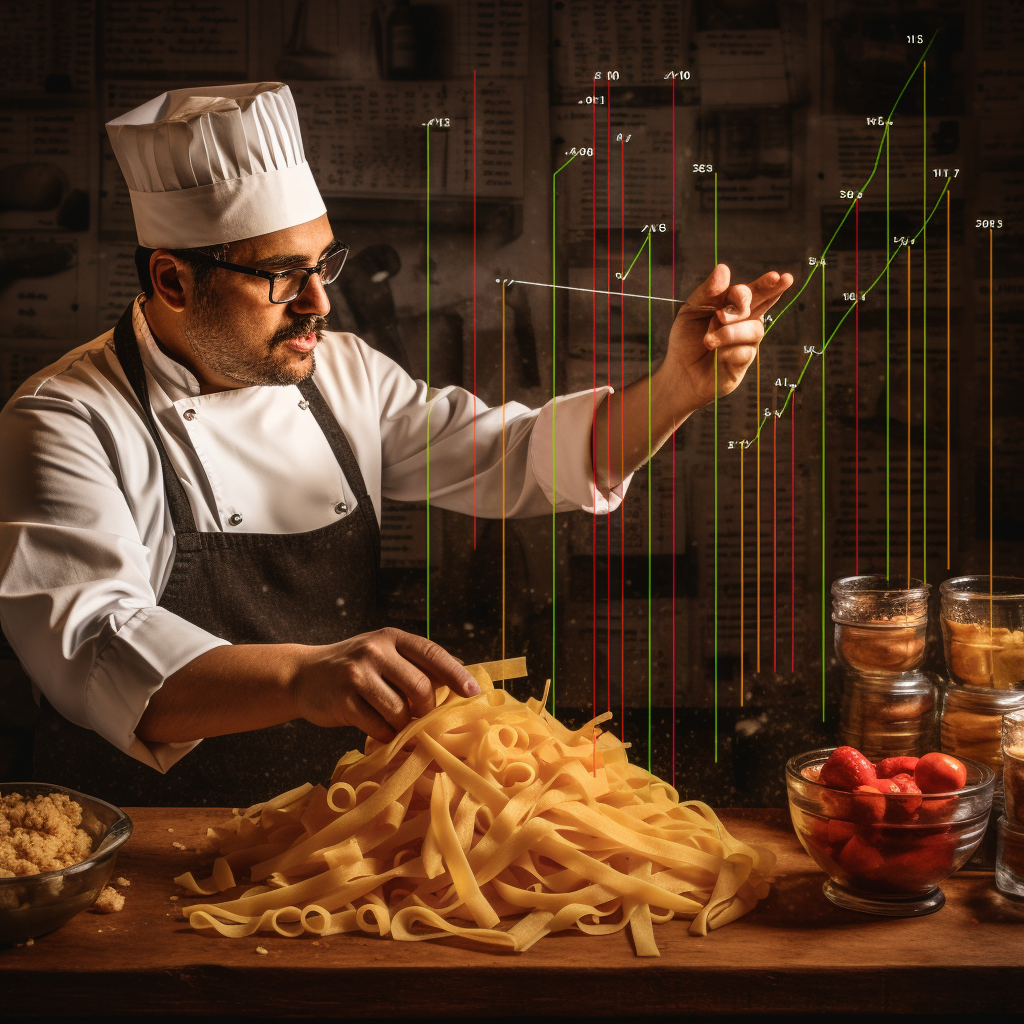Meet Marco Bucca, an Italian chef whose culinary kingdom crumbled not from an invasion of overcooked pasta or under-seasoned ragu, but from an onslaught of stars – five, to be precise. Marco traded the aroma of garlic and tomatoes for the intoxicating allure of digital applause, only to find that the echo of real-life satisfaction holds a tune the digital world can never hum.
Marco Bucca, a true son of Italy now residing in London, was the puppet master of a quaint restaurant nestled in Ealing. Il Cuoco del Villaggio was its name, a haven of red and white checked tablecloths, walls adorned with snapshots of Tuscany, and the irresistible, omnipresent aroma of garlic and tomatoes that danced on the breeze. The restaurant was once Ealing’s beating heart. Now, it was more like a heart on life support, yet it still held on, pulsating with Marco’s unyielding ambition.
In the earliest days, Marco was a true maestro in the kitchen. His hands moved with the grace of a skilled artist, his ragu was a symphony of flavours that could bring tears to the eyes of even the holiest of saints. “Marco, this ragu could solve world peace,” a customer once joked, to which he replied, “That’s not the ragu, that’s just the magic of Italian cooking.”
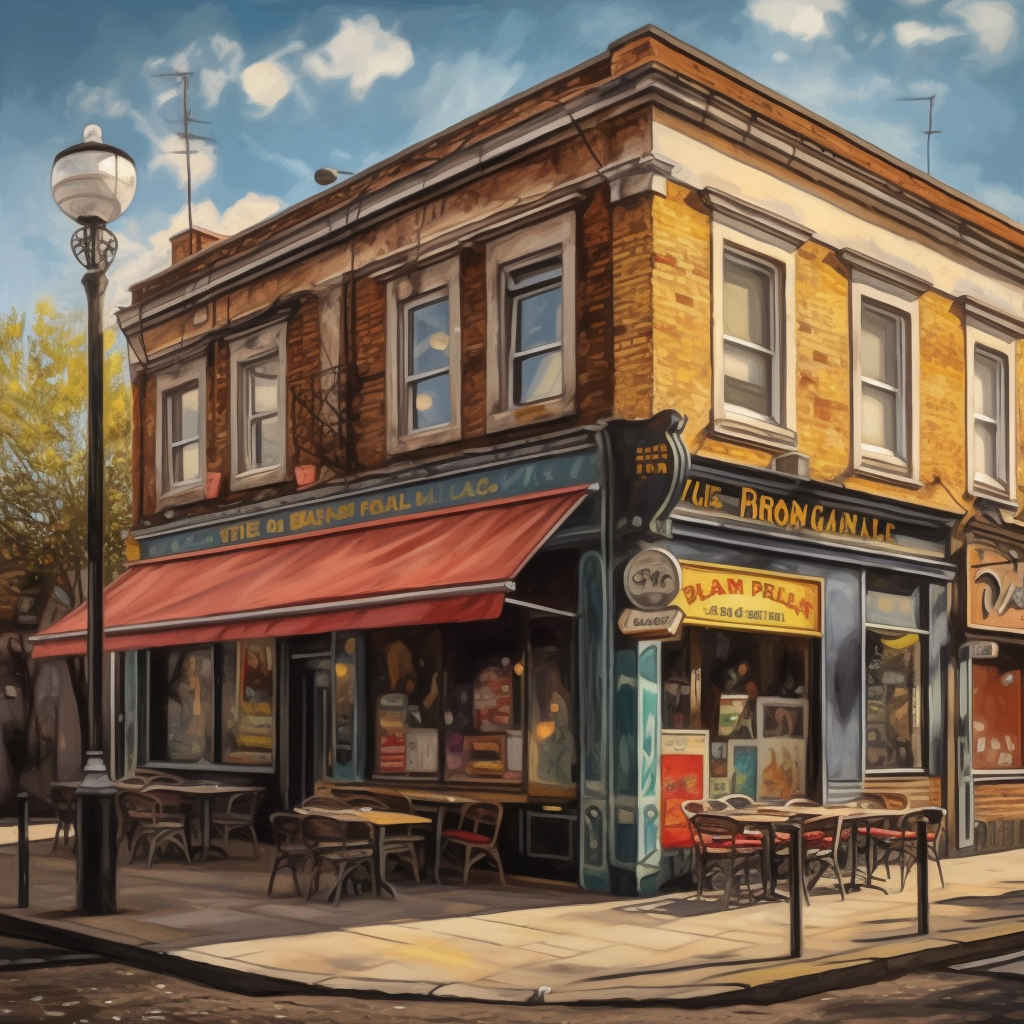
However, Marco’s focus shifted, becoming distorted. A fixation on digital ranking began to consume him, turning him from an artisan chef into a relentless marketeer. He craved five-star reviews like a moth drawn to a dazzling flame. One day, as a family of regulars entered, instead of the usual “Buongiorno” or “Buonasera”, he looked up from his iPad, eyes aglow, and asked, “Have you rated us on TripAdvisor yet?”
The family looked taken aback, they had come for the food, the ambience, the camaraderie that Il Cuoco del Villaggio once offered. Marco barely noticed their discomfort. He had traded his wooden spoon for a digital one, stirring not sauces but star-ratings and hashtags, user comments and influencers.
Marco’s staff were caught in the tide of this change, swept by the current of his obsession. Waiters, once focused on providing great service, now had their eyes set on a different prize: bonuses tied to positive reviews. “Remember, folks,” Marco would tell them during team briefings, “the customer’s not just always right. The customer’s your ticket to a good bonus.”
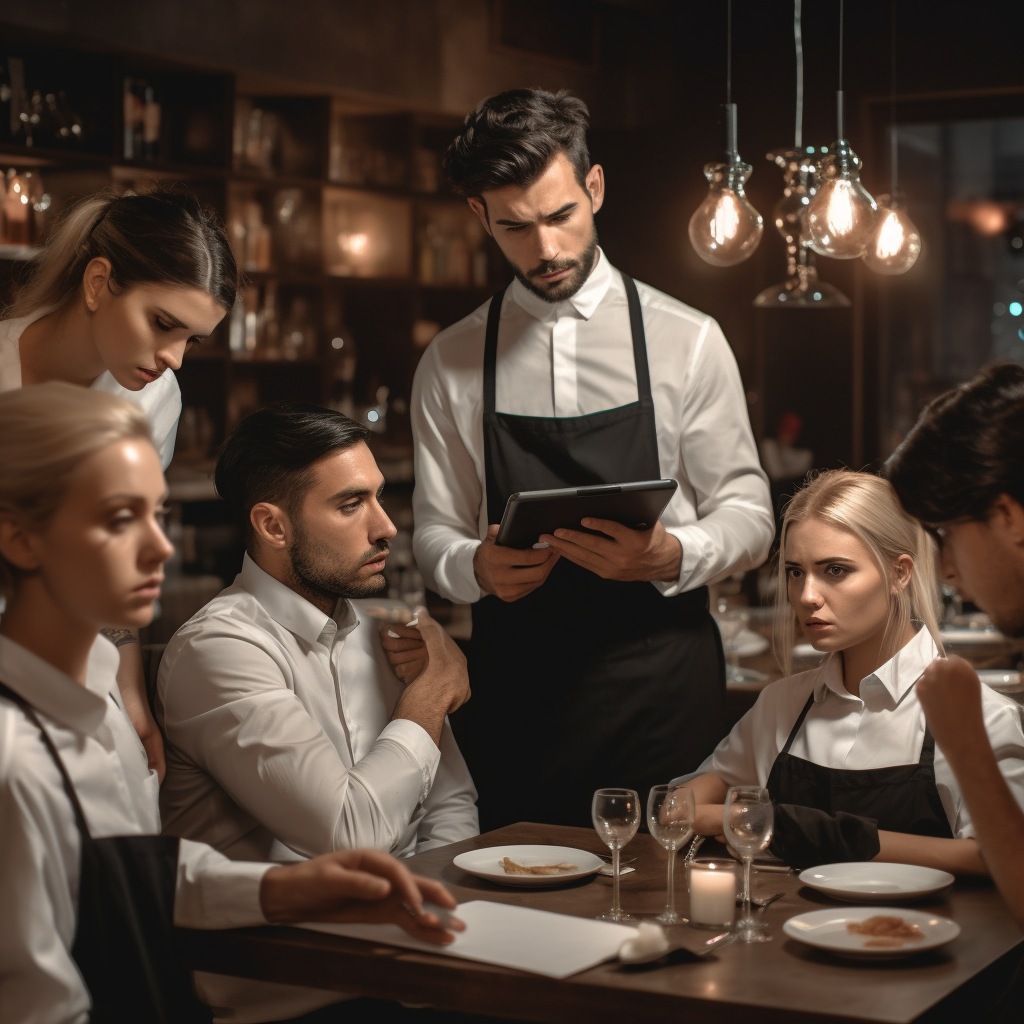
The ambience within the restaurant mutated. The hearty laughter, the clinking glasses, the murmurs of satisfied diners became secondary to the pursuit of digital praise. It was like a circus where the clown sought not the laughter of the audience but the thunderous applause, the standing ovation. People no longer came for the homely food or the welcoming atmosphere; they came for the spectacle of Marco’s relentless pursuit of perfection in the digital realm.
Marco’s desperation began to percolate, staining every decision he made. He enlisted the help of a digital marketing agency, turning his once honest operation into a factory of deception. They churned out glowing reviews from patrons who didn’t exist, their virtual tongues lavishing praise on Il Cuoco del Villaggio.
Every critique, every less-than-perfect rating, gnawed at Marco. He saw them not as opportunities for improvement but as personal attacks, underhanded manoeuvres by his competition. “It’s sabotage!” he exclaimed one evening to his waitress, Sophia, when a lukewarm review popped up on TripAdvisor. “Our rivals are sending spies to ruin us!” Anyone who dared to voice dissatisfaction was no longer a customer; they were culinary saboteurs.
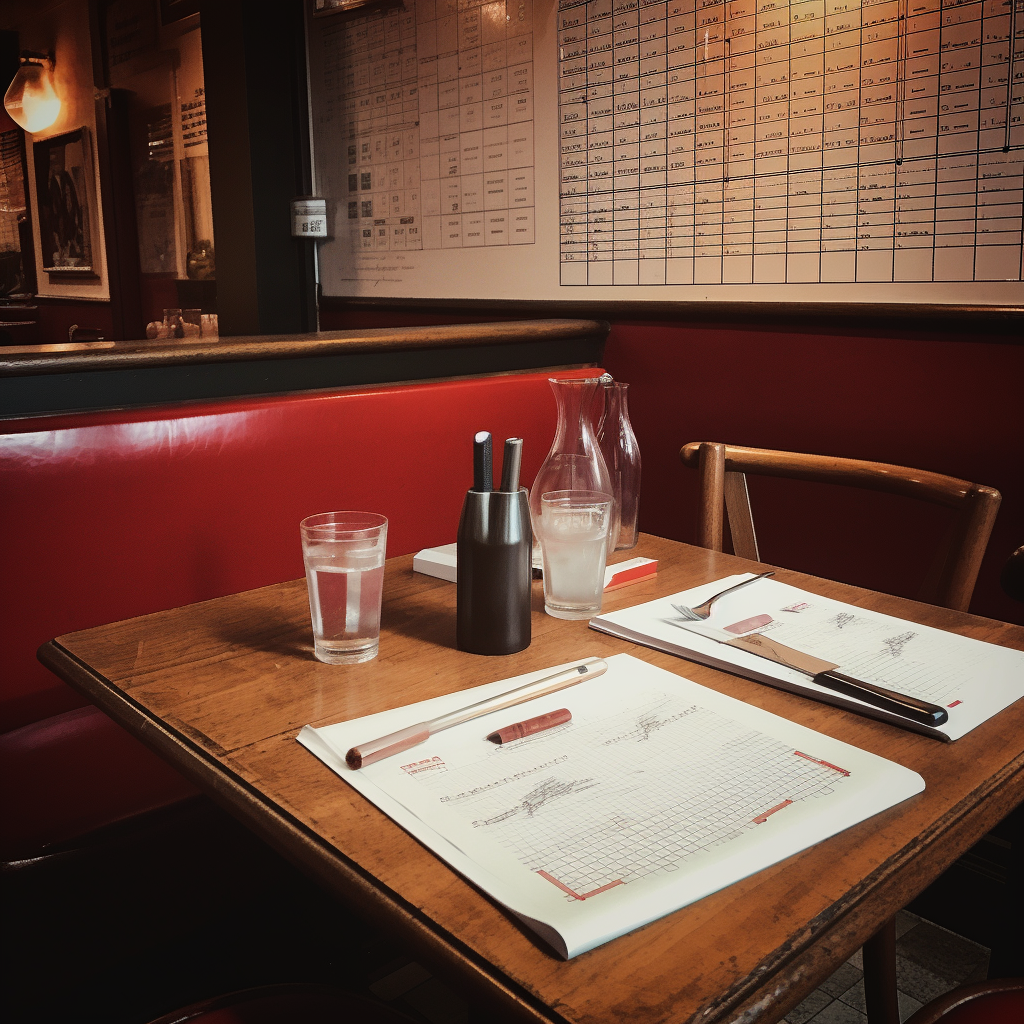
And then, on a Tuesday afternoon, the kind of chilly day that made you wish for the sun-drenched shores of Italy, it happened. A moment that should have been sweet, savoured like a perfect cannoli. Il Cuoco del Villaggio had climbed the summit. It was the number one restaurant in Ealing on TripAdvisor, Google, Yelp, every digital arena Marco had thrown his heart and soul into.
There were no balloons, no popping champagne corks, no jubilant cheers from loyal patrons. Marco sat alone, bathed in the cold glow of his computer screen, an empty kind of triumph etched on his face. He’d got what he’d yearned for, yet the taste of victory was far from sweet. The restaurant was quiet, save for the hollow hum of the refrigerator. He had conquered the digital landscape, yet his kingdom was eerily silent. His victory felt more like a ghostly echo, reverberating through the empty restaurant.
As the sunset painted the sky in hues of orange and pink, the evening rolled in, bringing with it an uncomfortable stillness. The door remained closed, no cheerful chime announcing the arrival of patrons. The tables, usually abuzz with chatter, sat empty, the glasses glistening unstained, the cutlery untouched.
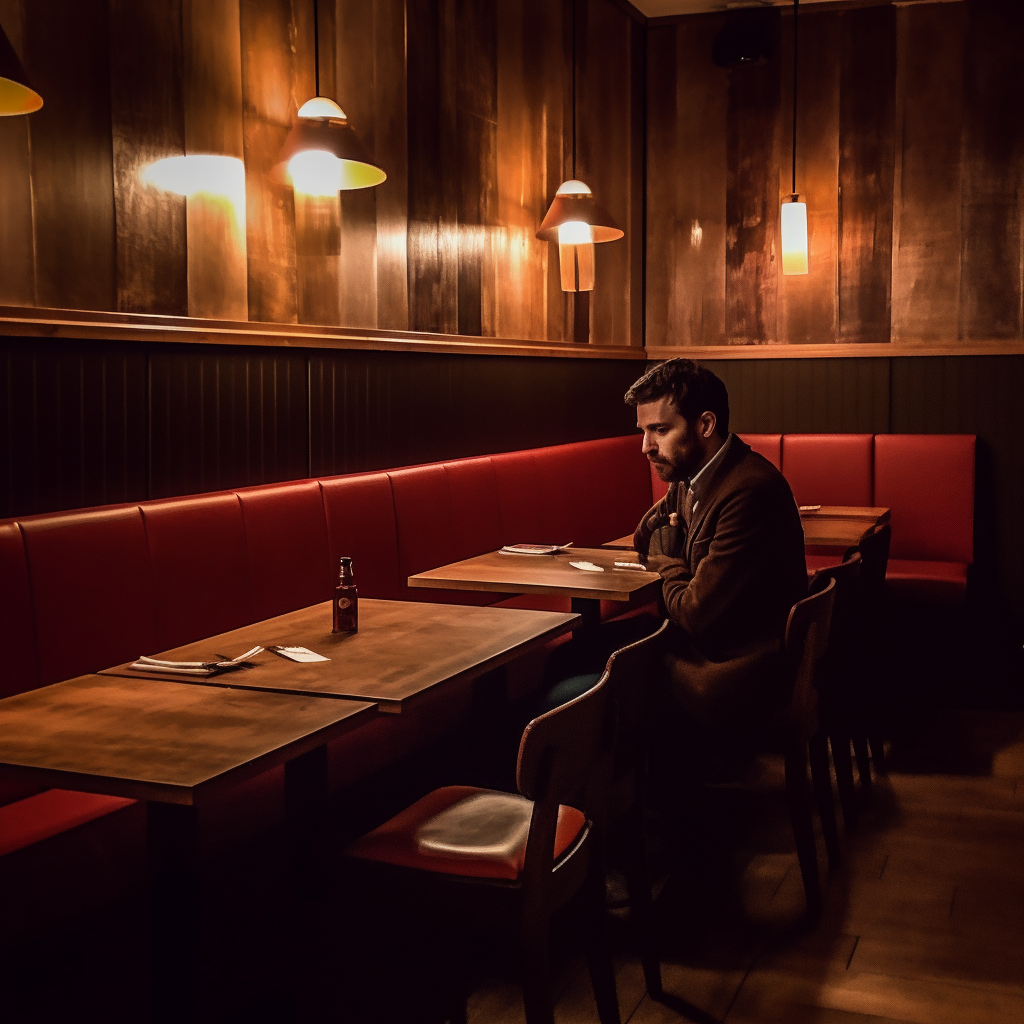
The digital hype Marco had carefully nurtured had smothered the very soul of Il Cuoco del Villaggio. The food had lost its Italian charm, the service reduced to mechanistic efficiency. The residents of Ealing, with their keen sense of authenticity, had drifted away. Whispers of disappointment spread, carried by friends, colleagues, neighbours. Word of mouth, a marketing technique as old as time, had spoken its truth.
In the eerie quiet, Marco sat, the heart of his vacant triumph pulsating around him. He stared into the emptiness of his once lively restaurant. His internal dialogue was a cacophony: “I’ve won the digital world, the ultimate laurel for my efforts. But where are the joyous cheers, the satisfied customers? Where is the vibrant soul of my restaurant?”
He had lost everything in the pursuit of this ephemeral victory. His authentic Italian kitchen, his loyal customers, his fiery passion for cooking, all had been sacrificed on the altar of digital recognition. He had claimed the number one spot, but at what cost? The price had been his soul, the soul of Il Cuoco del Villaggio.
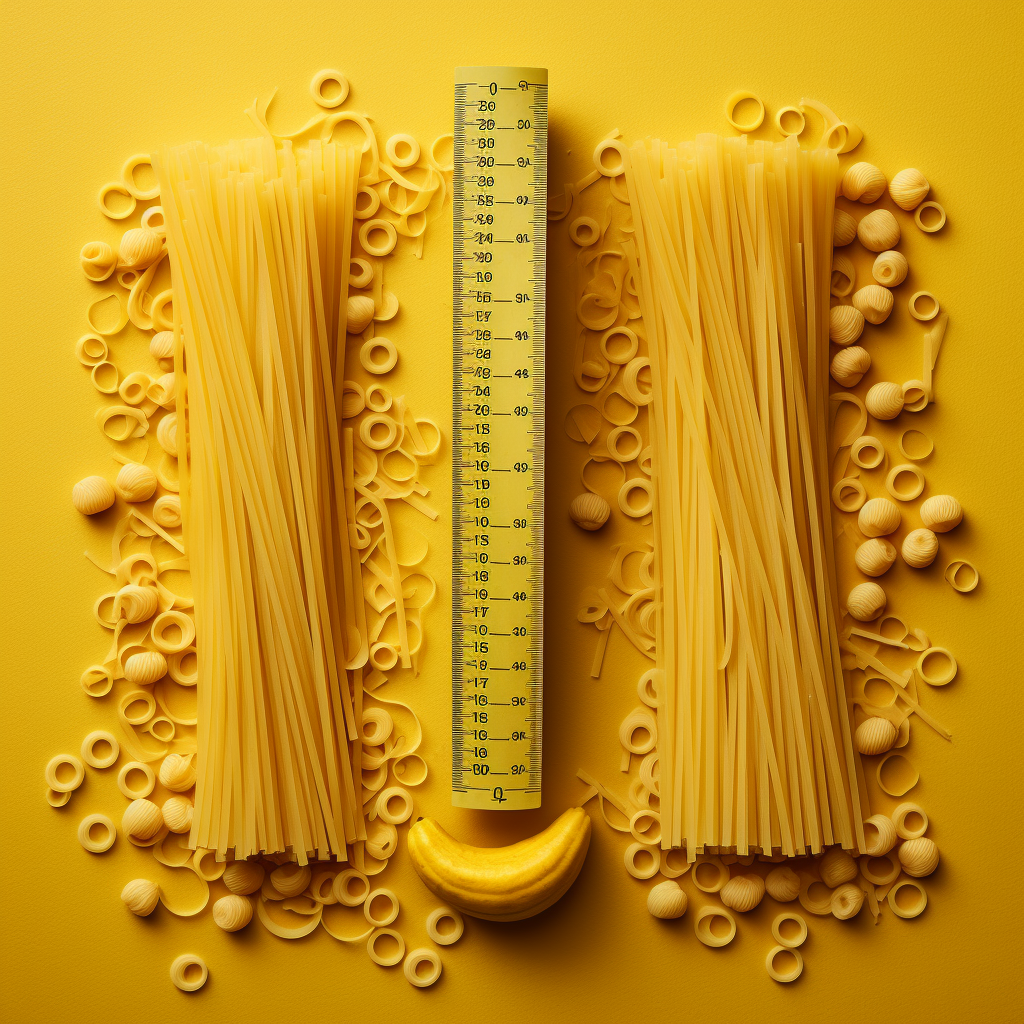
His silent restaurant echoed his melancholy, a grim monument to a tragic obsession. It served as a poignant reminder of a time when his restaurant was not a digital battleground but a home, a warm hearth for the community.
“So it goes,” he murmured into the quiet, the words barely more than a whisper, the last vestiges of a dream faded away. So it goes indeed.
All images were generated using Midjourney
